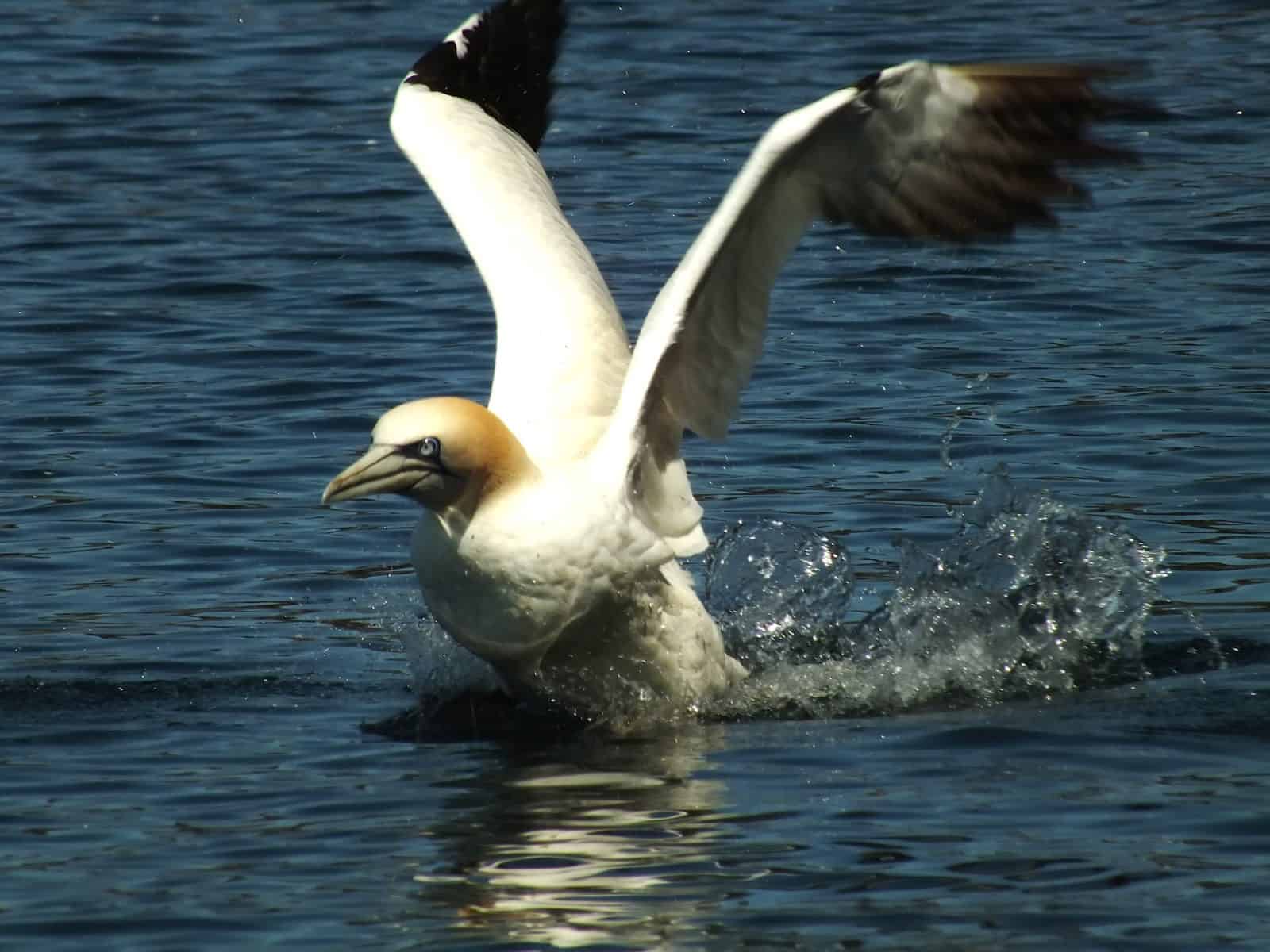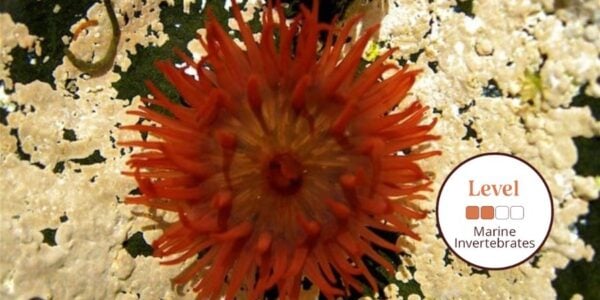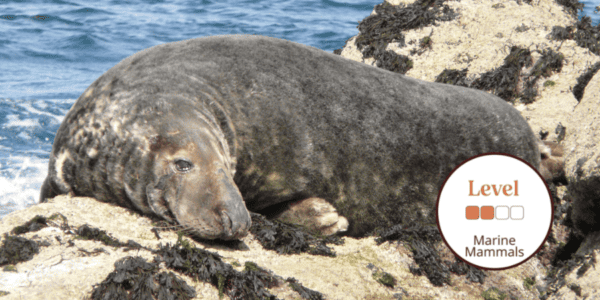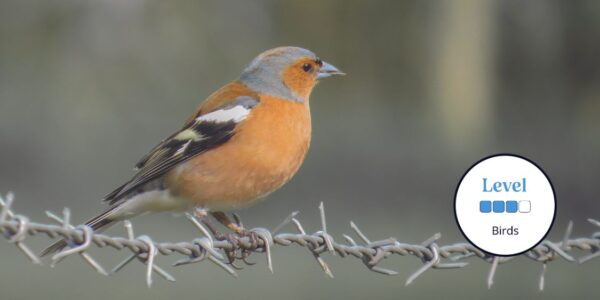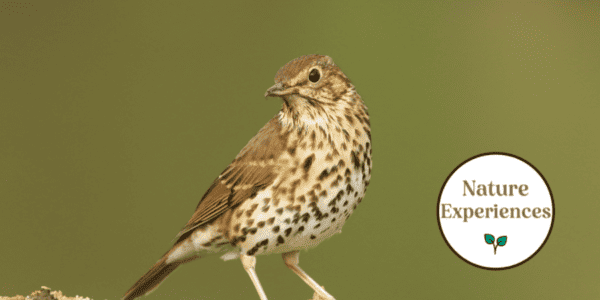This course is now closed for bookings
Find our full listing of courses here
This beginner/intermediate course is a starting guide to the skills required to begin identifying and observing our native seabirds in the field. You will learn valuable observational field identification tips, life history characteristics and general ecology of the different groups of seabirds found around the British coastline.
This is the perfect course for beginners looking to learn more about the seabirds seen around our coastline, appreciate their amazing lives, and start to identify these animals.
Seabirds are among the most charismatic and mysterious species on our planet. They spend most of their lives miles from land, surviving in extreme conditions and undertaking foraging trips and migrations that cover vast distances. These include gulls, terns, skuas, auks, petrels, shearwaters, gannets, cormorants and sea-ducks. Participants will also discover numerous opportunities to get involved with seabird monitoring and conservation efforts, from training courses and field surveys out at sea, to citizen science and group events on land.
“The astonishing findings of modern seabird scientists mean that a sense of wonder now emerges not from ignorance of birds but from understanding them”
– Adam Nicholson, A Seabird’s Cry.
This level 2/3 course is next in the series of our Birds framework and is a perfect progression from our level 2 Bird Field Skills online course.
This is a 3-week course covering 3 topics, for which you will complete a variety of online resources and activities. Topics are concluded with an interactive Zoom workshop. Understand how our online courses are delivered.
Who Should Attend?
Nature enthusiasts, Students, Rangers, Early career ecologists.
Knowledge Level
Beginner. Level descriptors can be found on the following webpage: Framework and Course Level Descriptors
Prior Knowledge
No existing knowledge or experience is needed for this course, though an understanding of bird groups would be beneficial.
Recommended Devices
It is recommended that you access your course through a PC or laptop. Please be aware that there will be reduced functionality if you decide to access the course through a tablet or smartphone. The Field Studies Council is unable to email content directly to you.
What will this course cover?
-
- Introduction to Seabirds and Conservation
- UK Seabirds Species Accounts
- Becoming a Seabirder
By the end of the course, you will be able to:
-
- Identify a variety of common British marine birds
- Describe their adaptations for surviving at sea
- Outline the different life-history strategies of different groups of seabirds
- Discuss some of the main threats to seabirds, and conservation measures implemented to protect them
- Understand how to get involved with seabird citizen science
- Share this new and exciting information with friends and family when out and about at the coast!
This is a training course from the FSC, including online course materials, expert tuition and a flexible learning style. After attending this course, you may like to progress your learning about birds with further relevant FSC courses, or branch out into other areas of the animal kingdom. FSC offers both online and in person courses, so you can choose the learning style that suits you best.
Please note that bookings will close at 9 am on Tuesday 28th June to allow for all participants to be enrolled onto the online platform – bookings will not be taken after this time.*
* Bookings will close sooner if course capacity is reached
The course gives you the opportunity to immerse yourself in a new subject and acquire novel skills. Our online portal gives you time to study at your own pace and fit the lessons around your own schedule.
-
- See the ‘Example Timetable’ and ‘What’s Included’ sections below for more information about this course.
- Each individual needs to place their own order to ensure we can sign you up to the learning platform and give you access to resources.
- Please email [email protected] if you have any questions.
Group Bookings Made Easy
If you have a group of 10 or more individuals wanting to complete one of our courses, our team are available to discuss your options – from discounts to private team courses.
-
- Discounted rates
- Privately run courses for your group
- Bespoke courses developed specifically for your needs
Email [email protected] to discuss your options!
Tutor: Jack Lucas
Jack is an experienced professional marine ecologist with broad range of field skills and scientific knowledge. With a focus on marine mammals and seabirds, Jack has worked all over the world on research projects studying these animals in their natural habitats. Jack was formerly the Senior Tutor at FSC Millport, where he led the provision of science, wildlife and outdoor activity courses to learners of all ages. He has taught seabird, marine mammal and other wildlife courses at FSC centres for the last 6 years and has an in-depth knowledge of the sites and species that feature in his courses. His love of marine megafauna is channelled through his teaching, where learners will discover how they too can get involved with these amazing creatures! Jack currently lives on the west coast of Scotland, and when back on land he can usually be found in the highlands or the islands, photographing wildlife or engaging in a variety of outdoor activities!Live Webinar Information
The webinars will take place on the following dates at 4pm (BST):
- Thursday 7th July 2022 at 4:00pm – 4:45pm
- Thursday 14th July 2022 at 4:00pm – 4:45pm
- Thursday 21st July 2022 at 4:00pm – 4:45pm
Please note - webinars will be recorded and uploaded to the virtual learning platform for learners unable to attend.
Example Timetable
Timetable
Week 1: Introduction to Seabirds and Conservation
Self-study material available: 30/06/2022
Week 1 live webinar: 07/07/2022 at 4:00 pm
Week 2: UK Seabirds Species Accounts
Self-study material available: 07/07/2022
Week 2 live webinar: 14/07/2022 at 4:00 pm
Week 3: Becoming a Seabirder
Self-study material available: 14/07/2022
Week 3 live webinar: 21/07/2022 at 4:00 pm
The final deadline to complete any outstanding activities and self-study components is 04/08/2022.
Time commitment: This course will require approximately 2-3 hours of your time each week. This includes covering course materials on our Moodle learning platform and the zoom session.
What's Included
The course has been carefully created to help you continue to build on your knowledge as the course progresses. With content crafted to the online Moodle Platform and bespoke to the FSC.
The course includes:
- Weekly 45-minute interactive Zoom workshops to connect with the tutor and other participants.
- Expert tuition for which the FSC is renowned.
- Exercises to work on independently in advance of each Zoom workshop.
- Tailored course certificate upon completion
Once registered, you will follow well-illustrated, user friendly ’books’ to pick up knowledge. Quizzes and skill-checks will give you instant feedback on your learning. Forums give students the chance to interact with each other as well as a place to share work.
You can rest assured that the absolute best content from an expert in environmental education will be at your fingertips. In choosing an FSC course, you will be joining thousands of people who learn with us each year.
Before You Attend
No field equipment is required for the course. However, there is a short field exercise, for which a pair of binoculars / camera and a notebook may be useful!
- Some useful books / guides to supplement the course:
- The FSC Guide to Summer Coastal Birds
- The Seabird’s Cry (Nicolson, 2017)
- RSPB: Seabirds (Taylor, 2018)
Once you sign up, you’ll receive an email at least 48 hours in advance of the course opening with details of how to access our easy-to-use platform, Moodle.
Webinars are via Zoom, so you won’t need any new software to attend
Please note that bookings will close at 9 am on Tuesday 28th June to allow for all participants to be enrolled to the online platform.
Sorry this course has ended

